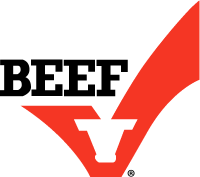A Supplemental Checkoff?
Forty-five cattlemens’ associations tell USDA: Don’t hijack the checkoff.
On Oct. 14, 45 state cattlemens’ associations representing more than 170,000 cattle breeders, producers and feeders sent a letter to Ag Secretary Tom Vilsack, urging him not to issue an order for a supplemental beef checkoff under the 1996 General Commodity Promotion, Research and Information Act. Bob McCan, National Cattlemen’s Beef Association (NCBA) president and Victoria, Texas, cattleman says the strong turnout of signatories to this letter demonstrate the concern across the country with the secretary’s stated intention.

“Our state affiliates sent a clear message to the secretary that they do not want a supplemental checkoff under the 1996 Act,” said McCan. “NCBA stands firmly behind our grassroots producer organizations and we will do everything we can to support their efforts. The checkoff belongs to cattlemen, not to the USDA or any administration.”
Grassroots producers have been the cornerstone of the Beef Checkoff Program since it was first enacted in 1985. There is no required element of the 1996 Act that increases grassroots influence in national checkoff efforts. Furthermore, the 1996 Act assures no protection to state beef councils, and gives much greater power to the federal government.
“The beef checkoff is a nonpolitical, nonpartisan structure designed by cattle producers to increase and support beef demand,” said McCan. “The beef checkoff serves all beef producers, nationwide, and the recent efforts by Secretary Vilsack do not serve the interests of producers; they only serve to politicize and polarize the industry. We are focused on how the beef checkoff can do more to support cattlemen and women; the administration has focused on how they can use the beef checkoff for political spoils and to increase the control of the federal government.”
More information can be found at www.beefUSA.org and producers can sign a petition directing the administration to abandon their efforts to take over the checkoff by clicking here.

Editor’s Note: This article was provided by the National Cattlemen’s Beef Association.






